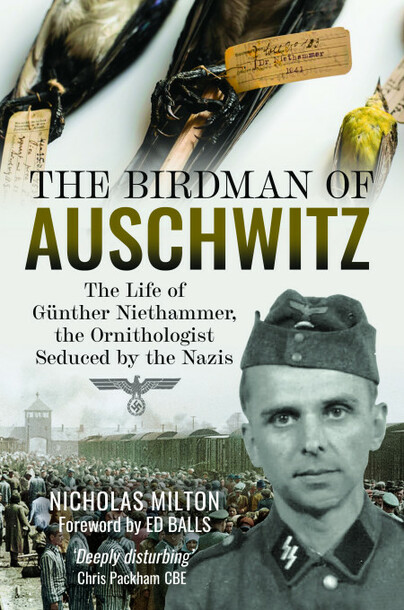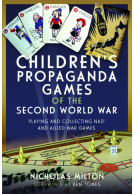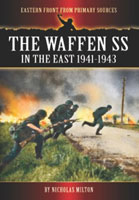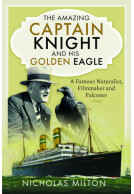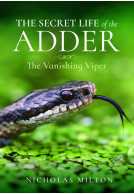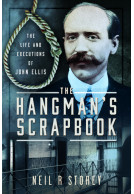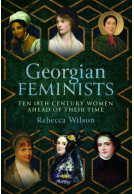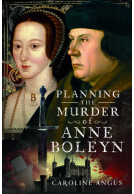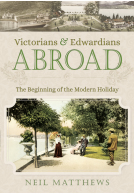The Role of Birds in World War One (Hardback)
How Ornithology Helped to Win the Great War
Imprint: Pen & Sword History
Pages: 256
Illustrations: 20 mono
ISBN: 9781399070560
Published: 3rd November 2022
(click here for international delivery rates)
Need a currency converter? Check XE.com for live rates
| Other formats available - Buy the Hardback and get the eBook for £1.99! | Price |
|---|---|
| The Role of Birds in World War… ePub (5.1 MB) Add to Basket | £6.99 |
The British Expeditionary Force sent to France in the late summer of 1914 has been referred to as the ‘Best British Army Ever Sent to War’ as it was one of the most highly trained and disciplined forces in the world. It was also the ‘Best Birdwatching Army Ever Sent to War’ for among its ranks were hundreds of both amateur and professional ornithologists. When not fighting, many soldiers turned to birdwatching as a way of whiling away the long hours spent on guard duty or watching over ‘no man’s land’. The list of birds seen by them serving in all the theatres of war was truly impressive, ranging from the common like sparrows, skylarks and swallows to the exotic like golden orioles, hoopoes and bee-eaters.
It was not just at the battle front that birds found themselves in the firing line but also on the home front. For the Foreign Secretary, Edward Grey, who worked tirelessly to preserve peace but ended up convincing the House of Commons to go to war, birds were his hinterland. But as well as declaring war on Germany on 4 August 1914, the government also declared war on the humble house sparrow, farmers falsely accusing it of destroying Britain’s dwindling wheat and oat supplies. From the outset the slaughter was opposed by the Royal Society for the Protection of Birds who eventually triumphed over the Board of Agriculture, becoming the powerful voice for conservation we know today.
When the guns finally fell silent on 11 November 1918 and the Great War came to an ignoble end, a generation of birdwatchers lay dead. Among them were scientists, researchers, lords, librarians, artists, authors, professors, poets, lawyers, surgeons and explorers, many young men with great promise. Had they lived, the science of ornithology and the hobby of birdwatching would have undoubtedly been much the richer. In commemoration of their sacrifice a selection of them is included in the Ornithological Roll of Honour at the back of this book.
I have thoroughly enjoyed the tales and vignettes Nicholas Milton has pulled together, intertwining two interests which many of us will share with him.
Paul Bennett, Army Ornithological Society
As featured in
Bird Watching
Probably of most interest to those already interested in birds, overall it is a good effort and a pleasant and engaging read.
Army Rumour Service (ARRSE)
Read the Full Review Here
Nicholas Milton has produced another fascinating book exploring the role played by birds in 20th century conflict...Like its World War Two companion, this is an easy-to-read work packed with interesting and often moving details about an unusual subject. With consideration of both ornithology and historical context, it should appeal to anyone with an interest in either field.
Lesley Hindley, British Trust for Ornithology
The true story of "Speckled Jim" of Blackadder fame, and the many birds used to send messages during the first world war. Added to which was the unique opportunity that presented itself for a whole new army of birdwatchers... Fascinating story.
Books Monthly
As featured in
Waterside Magazine
This one has been fascinating and I do highly recommend it.
Books2cover
Read the Full Review Here
Well-researched, well-written and covers areas where the author has quite a specialised interest and knowledge...the best of a very fine trio and it goes into my shortlist of Books of 2022.
Mark Avery, former RSPB Conservation Director
Read the full review here!
About Nicholas Milton
Nicholas Milton is an ornithologist, historian and a journalist. He has worked for The BBC Natural History Unit, The Royal Society for the Protection of Birds, The Wildlife Trusts and Greenpeace and has also written extensively about the Second World War for The Daily Telegraph, The Guardian, The Daily Mail and The Independent. His first book, Neville Chamberlain's Legacy, was published by Pen and Sword in 2019.
About Prof Ben Sheldon
Professor Ben Sheldon is the Director of the Edward Grey Institute and Head of the Department of Zoology.
About Beccy Speight
Beccy Speight has been the Chief Executive Officer of the RSPB since 2019, prior to joining the RSPB she was Chief Executive at the Woodland Trust.
The Birdman of Auschwitz The Life of Günther Niethammer, the Ornithologist Seduced by the Nazis (Hardback)
When Soviet troops were liberating Auschwitz concentration camp in January 1945 among the piles of half burnt corpses and emaciated prisoners left behind, they were amazed to find nesting boxes for birds. The same boxes were found in the walled garden at the house of Rudolf Hoess, the notorious camp commandant. In his safe, they also discovered a research paper on the birds of Auschwitz with a personal dedication. It read ‘I owe this to the great understanding which the commandant of Konzentrationslager Auschwitz, SS-Sturmbannführer Höß, gave to the scientific development of this area and…
By Nicholas MiltonClick here to buy both titles for £42.00








